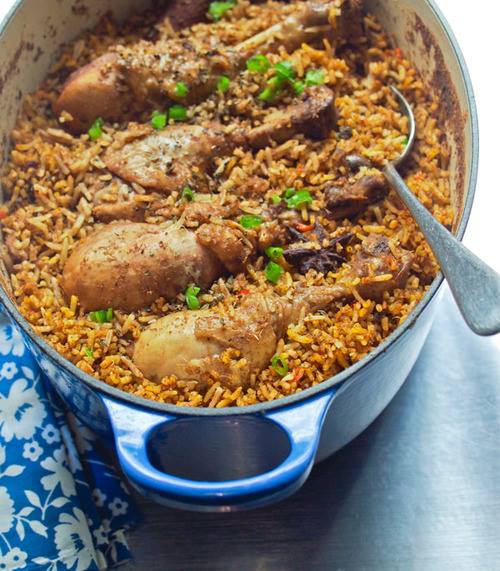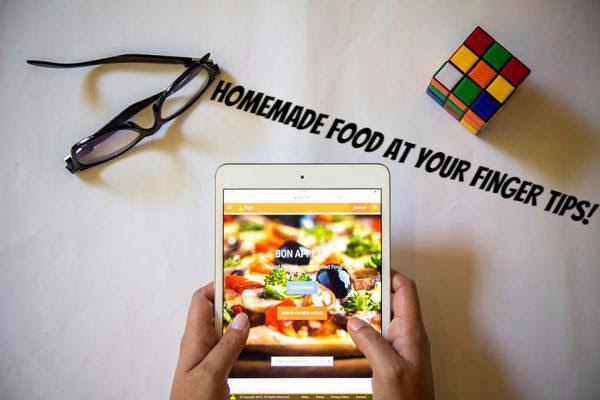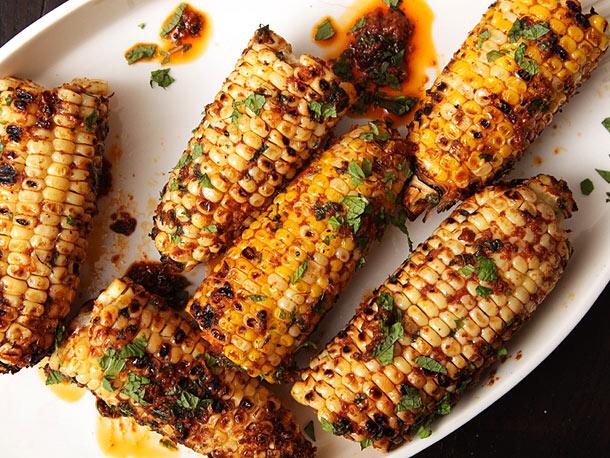By Hyacinth Mascarenhas
There is nothing like home-cooked food.
But stumbling in the front door at 7 pm after a long, hard day at work and the last thing anyone wants to do is make a mess in the kitchen. And let’s face it; there are days when Chinese takeout or pizza just doesn’t cut it.
Luckily, online food delivery startup Flyvr is set to change wishful reminiscing of mom’s ghar ka khanna (home cooked food) into a piping-hot homemade meal ready at your doorstep, the aroma, taste and wholesomeness of which cannot be replaced by fare from a fast food joint or a restaurant.
Dubai-based Pakistani husband and wife Adnan and Asra Nadeem launched Flyvr.co, a platform that brings foodies who crave for a home-cooked meal and amateur chefs eager to whip up that meal together.
“My co-founder and I are hardcore foodies,” said Asra. “We were living away from home and our searches for good quality homemade food were often fruitless, this is when we realized that there was simply no option to find authentic homemade food online, which led to the founding of Flyvr.”
Inspired by local food cafeterias called Carenderias in the Phillipines, Flyvr was initially launched in the Asian nation before expanding to Pakistan and the UAE. The website now boasts more than 500 registered amateur chefs from across the three countries.
“It may be surprising to many, but Philippines was a natural choice for Flyvr,” said Asra. “Homemade food in Philippines is delicious but relatively unknown in the world. Although the food and beverage industry is booming with some of the biggest food chains found in the country, the concept of “Turo Turo” in Philippines fascinated us. Turo Turo is a homemade canteen where home chefs would set up tables outside their homes and sell homemade food. We can vouch for the deliciousness of that food, and that’s why we always knew we would be bringing Flyvr to The Philippines.”
Essentially an Airbnb business model for food, Asra says their startup story started with the need to find simple yet delicious, home-cooked food online.
“Maybe it has something to do with me being Asian, but having grown up eating homemade food, the thought of relying on fast food take out as a grown adult after a day of hard work, was unbearable for me,” said Asra. “I do love occasional fast food, but I needed the comfort of homemade food. That’s when the idea started churning that there are people out there, who would need homemade food delivery just like me.”
Unlike the decades-old dabbawala system in Mumbai which delivers tiffin boxes from a customer’s home or a canteen, Flyvr helps foodies choose their meals from a wide variety of dishes prepared from home chefs, from African Gizdodo and chicken Laksa to Shami kebabs and Ferrero Rocher cheesecake.

Through the online platform, amateur chefs can sign up and post an advertisement for a homemade dish and determine the cost of each dish. Customers in turn can browse through fresh homemade food listings by chefs in their area made in their locality, place an order, and once the details of the delivery are ironed out, pay for their food through Flyvr.
“Keeping in mind the price of grocery and their effort, we give home chefs the liberty to choose their own price and delivery method,” said Asra. While there is no fee for posting or listing, both parties are charged six per cent per order. Each chef currently receives between 3-4 orders every week and can choose to receive payments every week or month.
Every amateur chef who registers with the website is also carefully vetted to monitor quality, safety and feedback. They can only begin to advertise their food services after a background chef, their social media is verified and they are personally contacted to learn more about them and their existing online businesses, if they have one. Once selected, users are asked to review and rate every chef to ensure that all food listings on the platform are constantly monitored.
Having launched in the UAE in July, Asra says the Middle East market offers a lot of potential for startups, despite the competitive nature of its food industry.
“Despite the surge of food establishments in Middle East, the homemade food sharing market has not grown in the region and barely exists,” said Asra. ”We wanted to revive the concept of eating healthy homemade food, thus our business model and services are unique to the industry in this region and with that we aim to bring a shift in the business landscape.”
With more than 150 chefs from Dubai, Sharjah and Abu Dhabi posting their homemade food online every day, homecooks in the country are finally able to showcase their passion for cooking and fulfil their entrepreneurial dreams using their tried-and-true recipes to earn a bit of money for their culinary talents.
“I have been cooking my native African cuisine for friends in Dubai,” said Dubai-based amateur chef Yvette Kikuyu. “I always wanted to reach more customers so when I found out about Flyvr, I knew I had to try it out. I usually post a food listing on weekends when I have time to spend in the kitchen.”
Currently looking for international investors, Flyvr is set to expand across the Middle East including Lebanon, Saudi Arabia, Egypt and Jordan.
“As George Bernard Shaw said “There is no sincerer love than the love of food,”” said Asra. “My foodie goal is to have home chefs posting yummy, affordable homemade food every day. My entrepreneurial goal is to spread the word about Flyvr. This way they not only get to experience yummy food, they support the community as well. The food industry is ready for new ideas as long as you delight customers with delicious offerings.”































Another successful venture in UAE is the online tutoring company
Retlm Tutors http://www.retlmtutors.com
At AED 49 / hour this company is delivering excellent tutoring services for British 7 Americn school students.